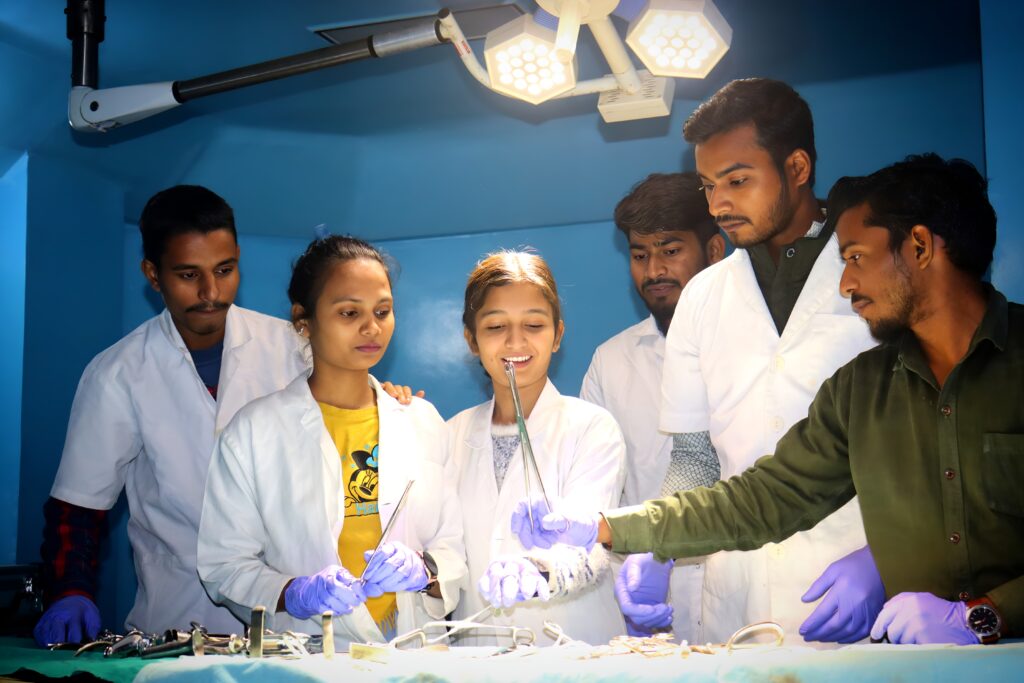B.sc Nursing
B.Sc Nursing Courses at Victoria College of Nursing & Paramedical Science
Course Overview: The Bachelor of Science in Nursing (B.Sc Nursing) program at Victoria College of Nursing & Paramedical Science is a comprehensive course designed to prepare students for a successful career in nursing. This four-year degree program combines theoretical knowledge with practical experience, equipping students with the skills needed to provide high-quality healthcare.
Curriculum Highlights:

Core Subjects:
- Nursing Fundamentals: Introduction to nursing principles, ethics, and basic patient care.
- Anatomy and Physiology: Understanding the human body’s structure and functions.
- Microbiology: Study of microorganisms and their impact on human health.
- Pharmacology: Understanding drug classifications, effects, and administration.
- Psychology: Insights into human behavior and mental health.
Clinical Training:
- Hands-on clinical training in various healthcare settings, including hospitals, community health centers, and specialized clinics.
- Simulations and practical labs to develop essential nursing skills, such as patient assessment, wound care, and emergency response.
Specializations:
- Opportunities to explore areas such as pediatric nursing, geriatric nursing, mental health nursing, and critical care nursing.
Research and Evidence-Based Practice:
- Training in research methodologies to promote evidence-based nursing practices, fostering critical thinking and analytical skills.
Health Promotion and Education:
- Courses focused on community health, nutrition, and patient education to empower students to promote wellness in diverse populations.
Job Opportunities After B.Sc Nursing
Graduates of the B.Sc Nursing program have a wide range of career opportunities in various healthcare settings. Here are some potential job roles:
Staff Nurse:
- Work in hospitals, clinics, and healthcare facilities, providing direct patient care and collaborating with healthcare teams.
Clinical Nurse Specialist:
- Focus on specific areas of nursing practice, such as oncology, cardiology, or pediatrics, providing advanced care and consultation.
Nurse Educator:
- Teach nursing students in academic settings or provide in-service training to staff in healthcare organizations.
Public Health Nurse:
- Engage in community health initiatives, focusing on disease prevention, health education, and health promotion.
Nurse Administrator/Manager:
- Take on leadership roles in healthcare facilities, overseeing nursing staff, budgets, and operational management.
Research Nurse:
- Participate in clinical research studies, collecting data, and assisting in the development of new treatments and protocols.
Nursing Informatics Specialist:
- Utilize technology and data management to improve patient care and healthcare processes.
Travel Nurse:
- Work on temporary assignments in various locations, providing nursing care where it’s needed most.
Home Health Nurse:
- Provide nursing care to patients in their homes, often working with patients who have chronic illnesses or require rehabilitation.
Emergency Nurse:
- Work in emergency departments, providing care to patients with acute medical conditions and injuries.
Conclusion
A B.Sc Nursing degree from Victoria College of Nursing & Paramedical Science opens doors to a fulfilling career in healthcare. With a strong foundation in nursing principles and extensive clinical experience, graduates are well-equipped to meet the challenges of the healthcare profession and make a positive impact on patient lives.
